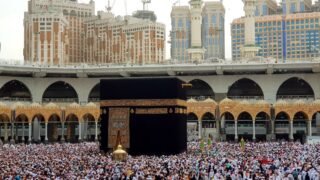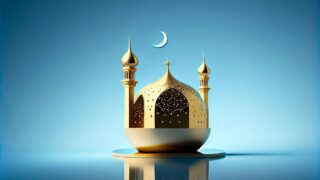Many of us have a certain concept of Eid in our minds. When the day comes, if that concept is not practically realized, we tend to think that our Eid was boring or did not pass very well.
The concept is as follows:
- Eating good food and having good lawful drinks
- Intermingling with relatives and/or friends
- Dressing oneself in new or beautiful clothes
The reality, however, is quite different. Islamic traditions have a more sublime or rather “the correct” definition of Eid. The word Eid comes from the word awd meaning “return.” Eid means a specific kind of return: days in which the previous state of prosperity of a community returns after the miseries it was facing, which are known as the days of Eid. The reason why the day following the month of Ramadan or the compulsory Hajj is known as Eid is due to the soul’s return to its original state of inborn purity. We must understand that this is only possible by self-purification or the removal of a variety of curtains of darkness and light that cover the lofty human soul and hide one from one’s own higher God-loving reality.
However, one who was indifferent to the act of self-purification during the month of Ramadan or while performing the great pilgrimage should not consider the day of Eid to beEid for one, simply because one’s initial state of purity has made no return.


















